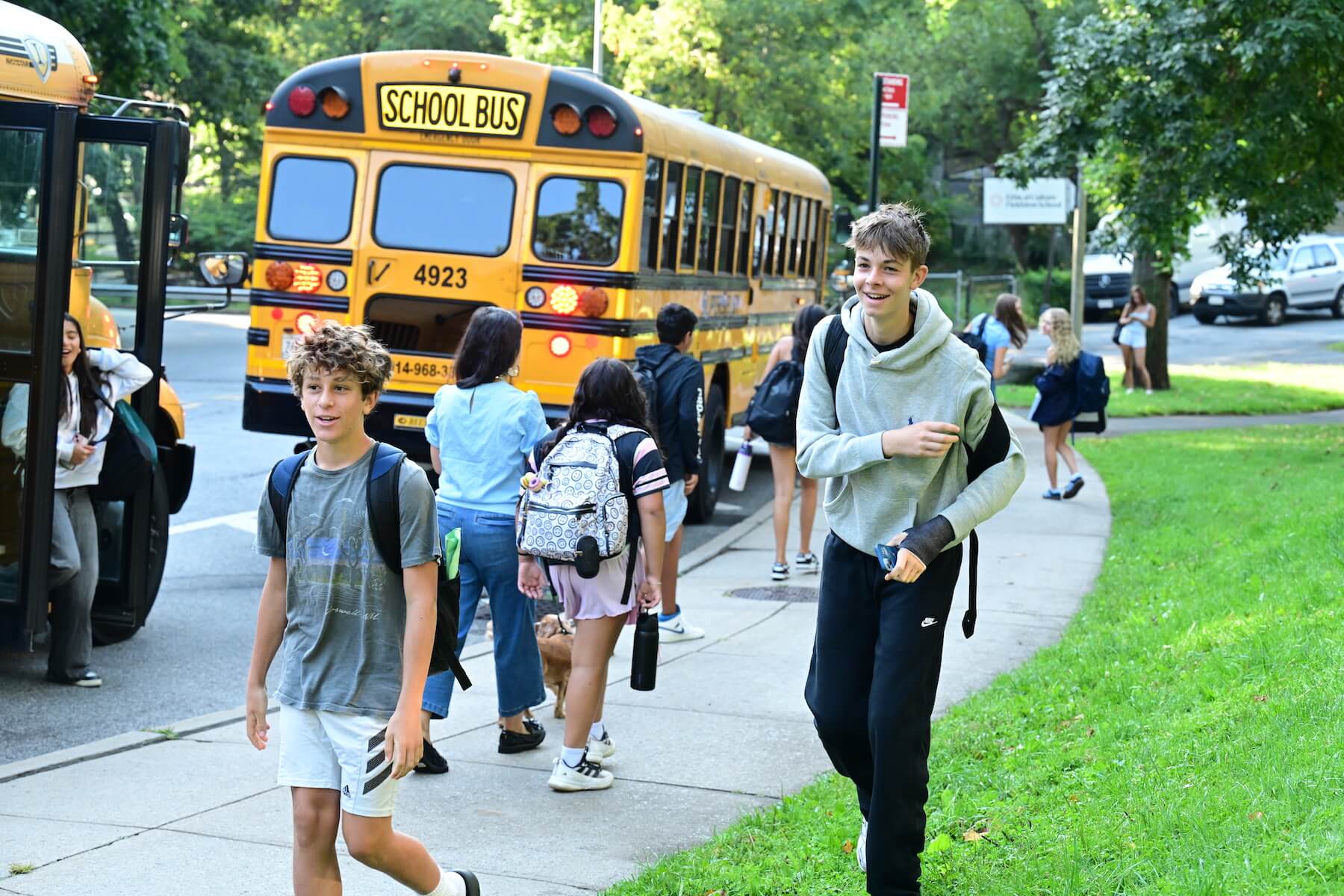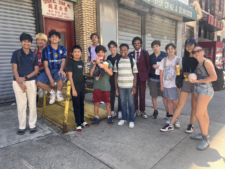With their pencils sharpened and backpacks full, students at Ethical Culture Fieldston School have embraced the excitement and challenges of a new academic year. As both students and families adjust to new routines and milestones, teachers and counselors across all four divisions shared advice on how to start this year successfully.
Ethical Culture
The beginning of a new school year is such a magical time. This especially rings true for Pre-K. So many aspects can feel overwhelming, from the hustle and bustle of entering the building at 8:30am, to seeing so many new and unfamiliar faces, to even figuring out whether to take the elevator or the stairs to the roof. While it may feel overwhelming, it’s all part of the wonderful journey that is Pre-K at Ethical Culture.
We spend a good portion of the year understanding who is in our community and how to show kindness and empathy to all. One way to ease in, while also aligning with our work in Pre-K, is to model asking new people their names. Everyone in our building loves to be greeted!
- Check in with your child and how they’re feeling. Naming their feelings and hearing about a time their grown-ups felt the same way is a wonderful way to ease big feelings.
- When asking about a student’s day, be specific: “What special did you have today?” “Who showed kindness to you today, or how did you show kindness to someone in your community?”
- Visit our school library. We spend our year continuing our love of stories and learning through books.
- Give your student opportunities to help at home and be independent. Students should be responsible for their backpacks, putting on their jackets, and ensuring they have all the necessary items for a wonderful day at Ethical Culture.
— Veronica Vazquez, Pre-K Head Teacher, Ethical Culture
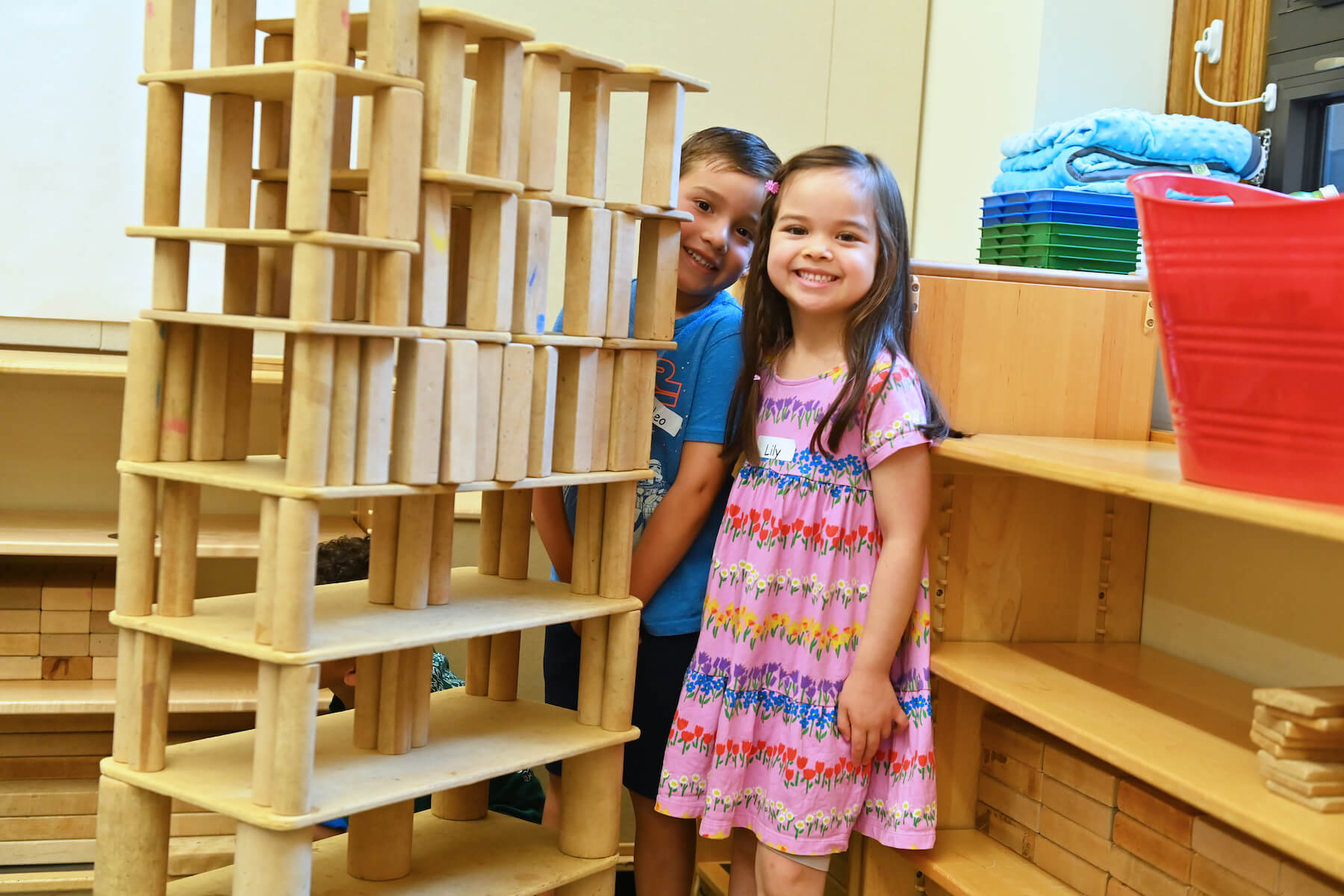
It can be hard to start a new school year. Establishing routines again, such as an earlier bedtime and allocating time in the morning according to your child’s needs, is key. Remember how your child does their best during the day. Did they have enough sleep? Have they eaten a good dinner? Do they need extra snacks for after school? A lot of kids are excited to go back to school, but they’re also thinking, ‘I’m going to miss my camp,’ or ‘I wish I could be at the beach, ’ so it’s important to be excited and positive about returning to school.
Ask specific questions at the end of the day, such as ‘What was the funniest thing that happened today? Who did you play with at recess?’ These types of questions don’t overwhelm students, especially if they’re tired at the start of the year. They’re getting back into a routine, so maybe don’t overschedule them and use weekends for relaxation before reestablishing play dates. If your child feels anxious about schoolwork, remind them that everyone’s working on something. Know your child and say, ‘If you feel stressed about math, let’s take five deep breaths. Remember to ask a friend or a teacher to re-explain something.’ Remind them of their own strategies for self-advocacy.
— Margot Tenenbaum, Guidance Counselor, Ethical Culture
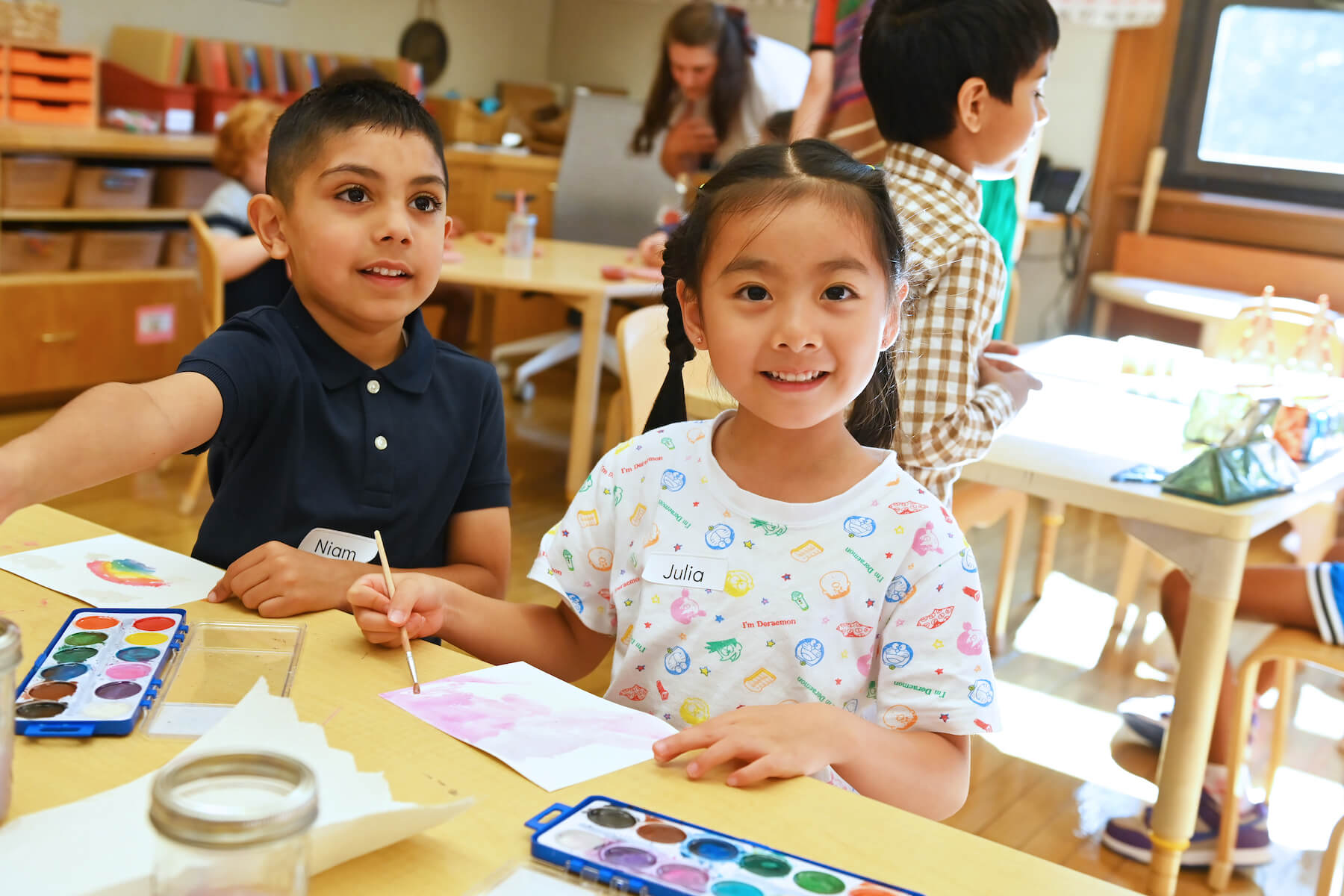
Fieldston Lower
Starting a new school year is always one of the busiest and most emotional parts of the year for teachers, students, and parents/guardians. We are all excited (or anxious) to see what’s in store with new classmates, mourning the end of summer, and trying to tackle everything on our to-do lists. We can easily get swamped, so my advice is to take a minute to reflect on your lessons from previous years and your goals for the new one. I start each new year writing a letter to myself about how I’m feeling and what I hope will be true in June. I do the same activity with students. This helps them set an intention and provides an opportunity to be mindful about how the year is beginning.
Another piece of advice I have for students and parents/guardians is to enjoy the moment. I’m teaching 5th Grade, which is a big milestone in a child’s school career. There will be plenty of time for children to be middle schoolers. We will certainly look ahead and make sure everyone is prepared for what comes next, but there is no need to rush. Enjoy 5th Grade — or whatever moment you may be in — while it lasts.
— Thaddeus Evans, 5th Grade Head Teacher, Fieldston Lower
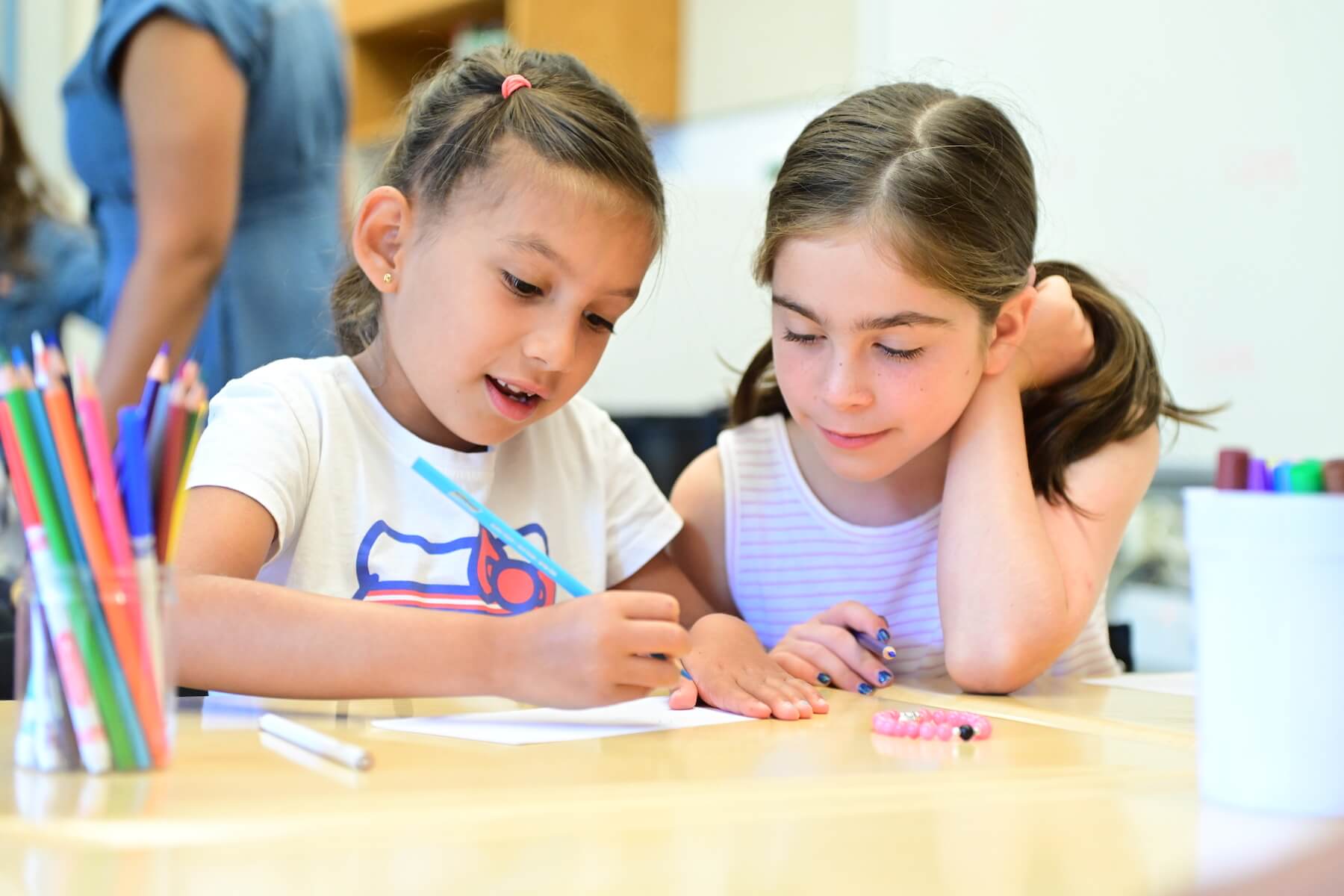
Enjoy 5th Grade — or whatever moment you may be in — while it lasts.
Expect some first-semester jitters from your children and stay calm; young students tend to take their lead from us. Difficulty separating can be a sign of anxiety. Learning to expect at least some of this will help to keep your own anxiety in check. Starting a new school year for every child may bring worries about friendships, new expectations for the year, or simply wondering how this year will be different from the last. Try to stay calm, problem-solving oriented, and neutral when working with your child to navigate these feelings without getting stuck on them. It helps children avoid catastrophizing and remain oriented on how to proactively tackle uncomfortable things.
For most children, first-semester worries tend to lessen as they ease into routines and play with their classmates. What was once unknown quickly becomes the new normal!
— Dr. Simira Freeman, Psychologist, Fieldston Lower
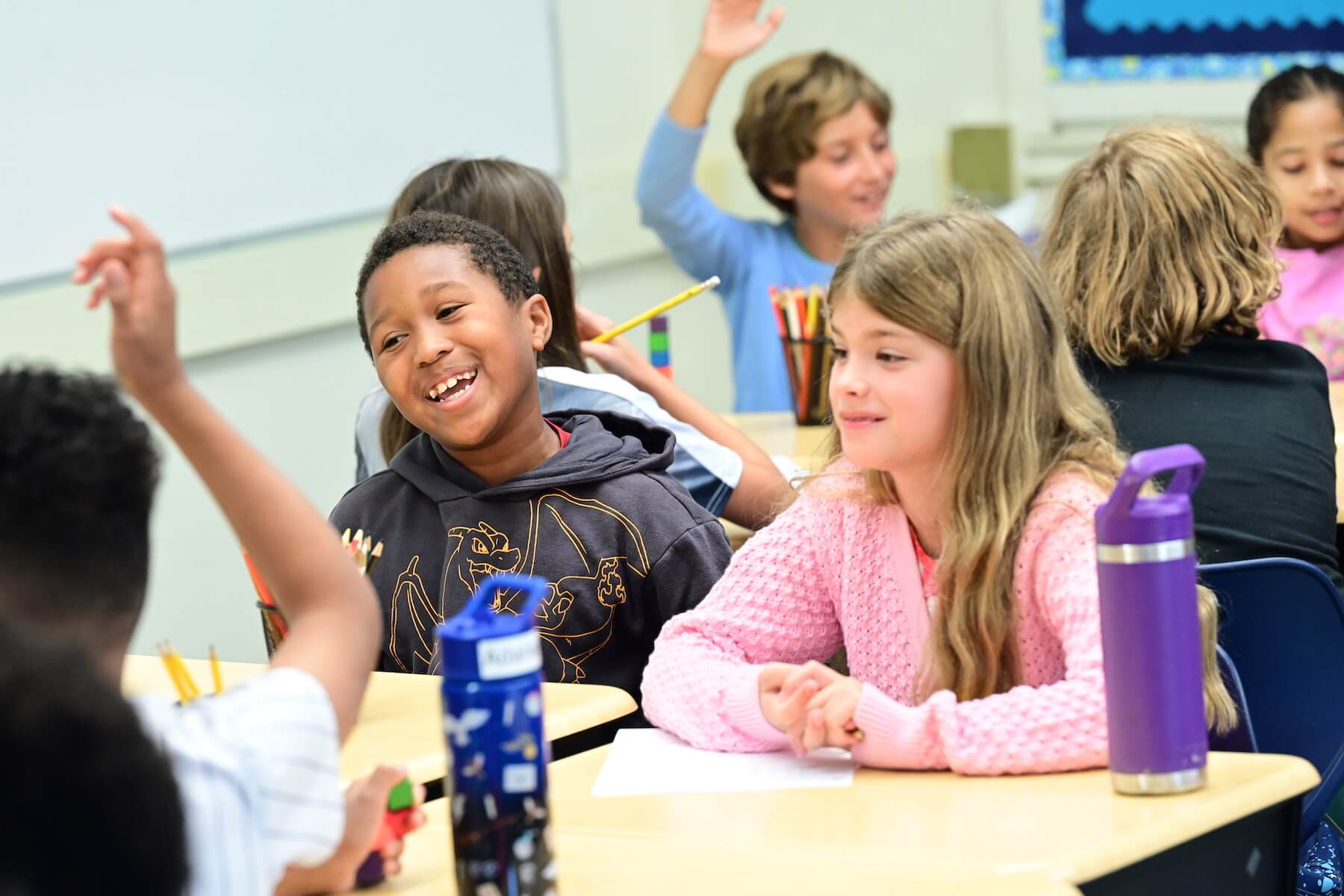
Fieldston Middle
During the transition from summer, it’s important to be kind to yourself as a parent/guardian and to be compassionate to your children. As the 6th Grade Dean, I encourage students and families to build consistent routines. Getting enough sleep, setting up a quiet workspace, checking planners and Google Classroom’s to-do list, and setting up a calendar for long-term assignment dates can support time management and reduce stress.
Academically, setting goals and staying organized helps students stay on top of assignments and build confidence. Color-coding classes (blue for math, green for science, etc) helps students to grab their materials more easily. Equally important is making time for wellness and self-care. Activities such as daily movement, eating balanced meals, and allowing yourself downtime for relaxation all support both mental and physical health.
Middle school is such a wonderful time of growth and discovery. I encourage students to get involved by joining lunch clubs, participating in class discussions, and taking the opportunity to connect with new peers and teachers.
It’s also essential for families to stay connected with the School. Your partnership not only supports your child but also creates a much-needed support network for yourself.
Finally, you might notice a shift in how much your child shares as they move through middle school. If “How was your day?” doesn’t get the responses you once did, try one of these questions instead:
- “What made you smile or laugh today?”
- “What made you feel proud of yourself?”
- “What’s feeling good, and what’s feeling hard right now?”
These kinds of questions can open the door to deeper conversations and help you stay connected through the ups and downs of middle school life. Middle school isn’t easy, but together we can help make these years a little smoother!
— Elizabeth Flores, 6th Grade Dean and Math Teacher, Fieldston Middle
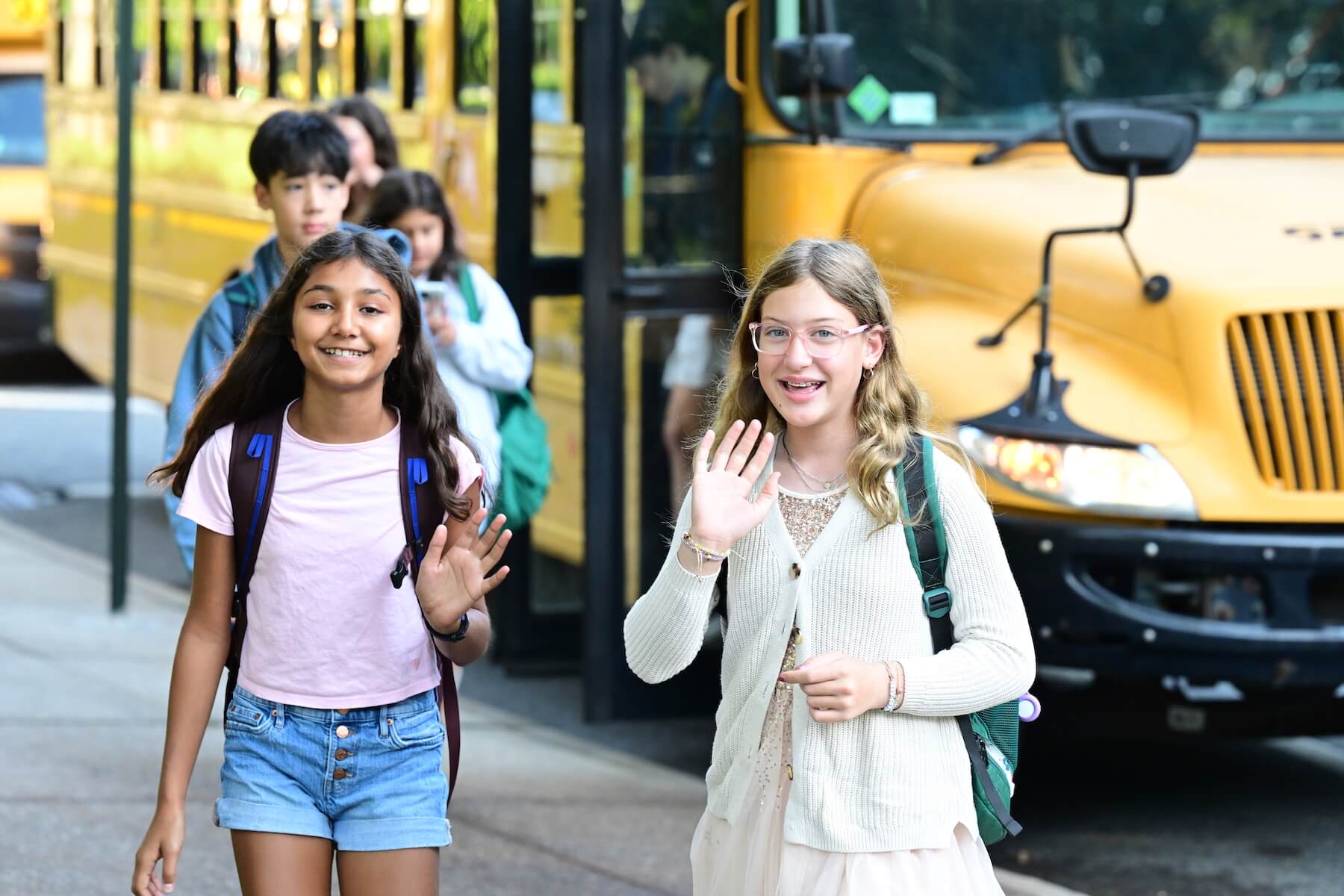
Our 6th Grade Health and Wellness course uses the 7 Dimensions of Wellness framework to help students understand that health encompasses more than just the physical aspects, and academic success is more than just mastery of content. To be our best selves, we must adopt a holistic approach to wellness and student success.
The seven dimensions of wellness include: physical, emotional, social, intellectual, spiritual, environmental, and occupational (school/work) dimensions. Each area influences the others, and when students learn to care for all seven, they build balance, resilience, and healthy habits that support both school success and personal growth. Teaching this model at the middle school level helps students understand how choices like sleep, friendships, screen time, stress management, and even mindset all connect to their overall well-being.
As students and families are adjusting to school, suggestions on how to start the year successfully with a focus on these dimensions include:
- Prioritize healthy routines (physical wellness): This directly impacts attention, mood, and academic performance.
- Recognize the transition to independence (emotional and social wellness): Developmentally, middle schoolers crave and learn more independence; at the same time, they still require structure.
- Balanced tech use (environmental and intellectual wellness): Set clear, but flexible guidelines around screen time, especially social media, and model healthy digital boundaries at home.
— Bree Aitoro, Middle School Counselor, Fieldston Middle
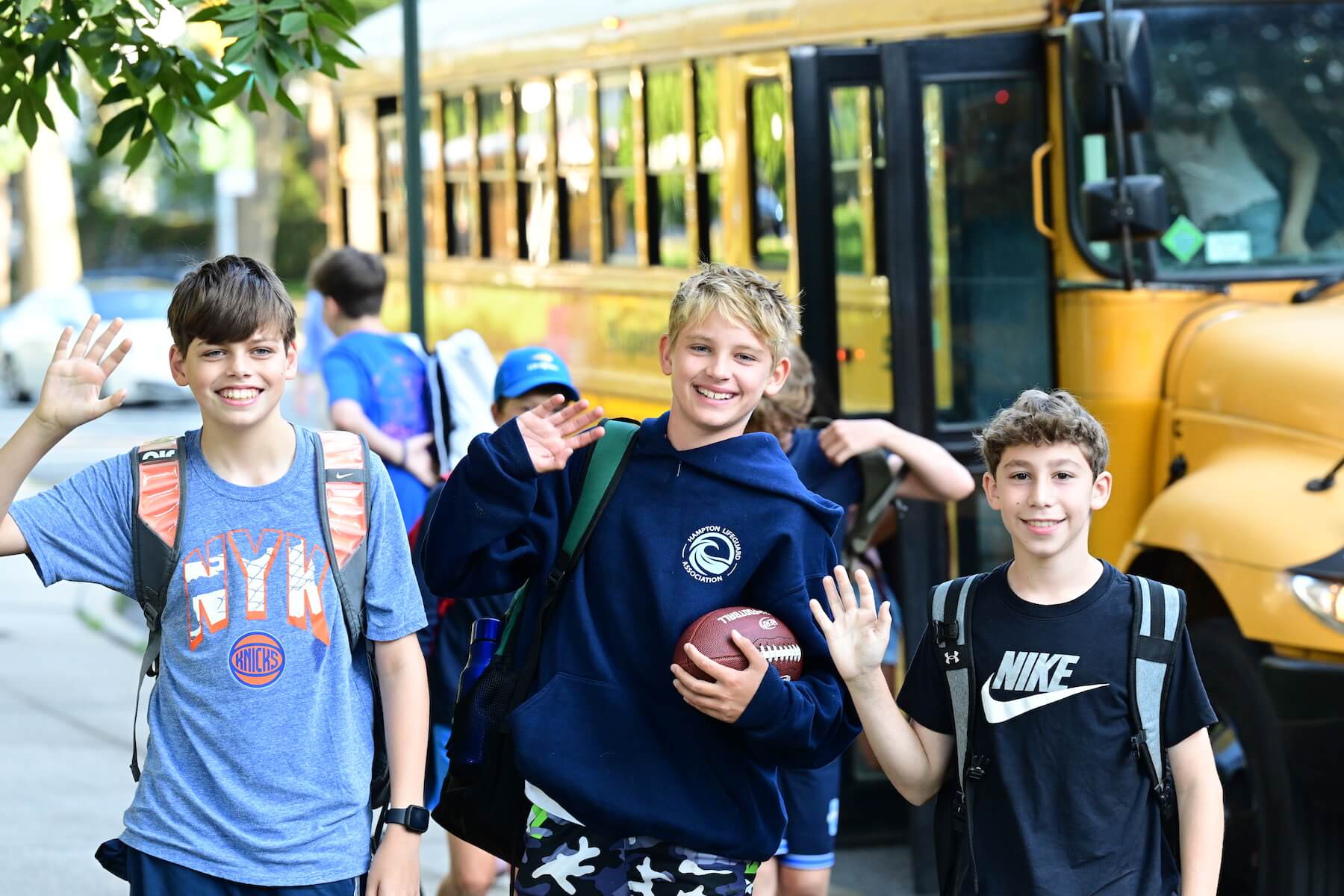
Fieldston Upper
There are two go-to tips that I always try to bear in mind as I head into the school year, both of which relate to inevitable conflict between students and caregivers.
Conflict is a common occurrence in all families. Working to avoid conflict can be amorphous; knowing what to do when conflict arises can not only be helpful in the moment, but actually tends to reduce conflict over time.
The first step is to adopt an approach that allows for mistakes. Mistakes are not only human, they are one of the best ways to learn something. When I led adolescent therapy groups, I often asked children to outline the chapters in a book on parenting. They only had one chapter heading: Own Your Mistakes. It’s very powerful for a student to see their caregiver take responsibility for their part in a conflict (of course, it’s also very powerful for a caregiver to see a student do so).
The second is to “strike while the iron is cold.” This goes for caregivers and students. Often, in the heat of the moment, our tendency is to harden our position, and we actually become worse at taking the other person’s perspective. Striking while the iron is cold refers to waiting until a situation has calmed down before addressing a conflict. Just because it’s not solved immediately doesn’t mean it won’t be solved.
— Dr. Ben Harris, 12th Grade Psychologist, Fieldston Upper
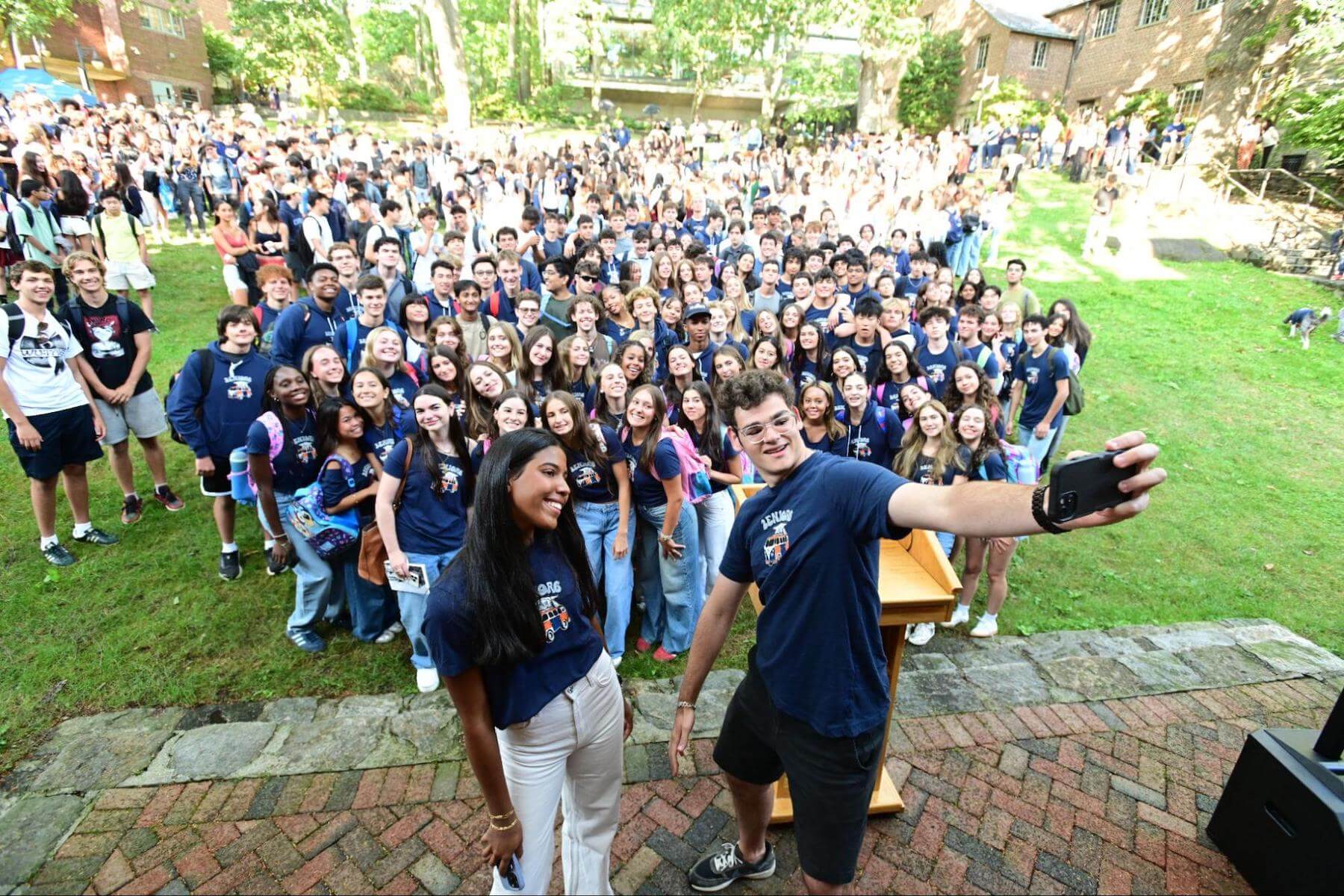
Starting the school year, especially as a 9th Grade student, can be daunting. Being on a new campus division, meeting new teachers, and having more complex homework can make even the most confident student stressed. I strongly encourage students to get to know their teachers. Talk to teachers after class and go to office hours; even just saying hello in the hallways makes a difference. When students get to know their teachers, it makes asking for academic support easier and can help the teacher understand the pressures a student might be feeling.
Having a short meeting with the form psychologist can also help acclimate students to the new year. Psychologists can be great thought partners when students are trying to decide which classes to take or how to talk to a friend about a conflict. The deans are also a wonderful resource for students. Fieldston is unique from other schools because of our partnership between deans and psychologists, and students have a great opportunity to find support in this community. And most of the psychologists’ and deans’ offices have snacks!
Additionally, parents/guardians can also reach out to teachers, deans, and psychologists to find answers to questions and support for their students.
— Karen Drohan, 9th Grade Dean and History Teacher, Fieldston Upper
